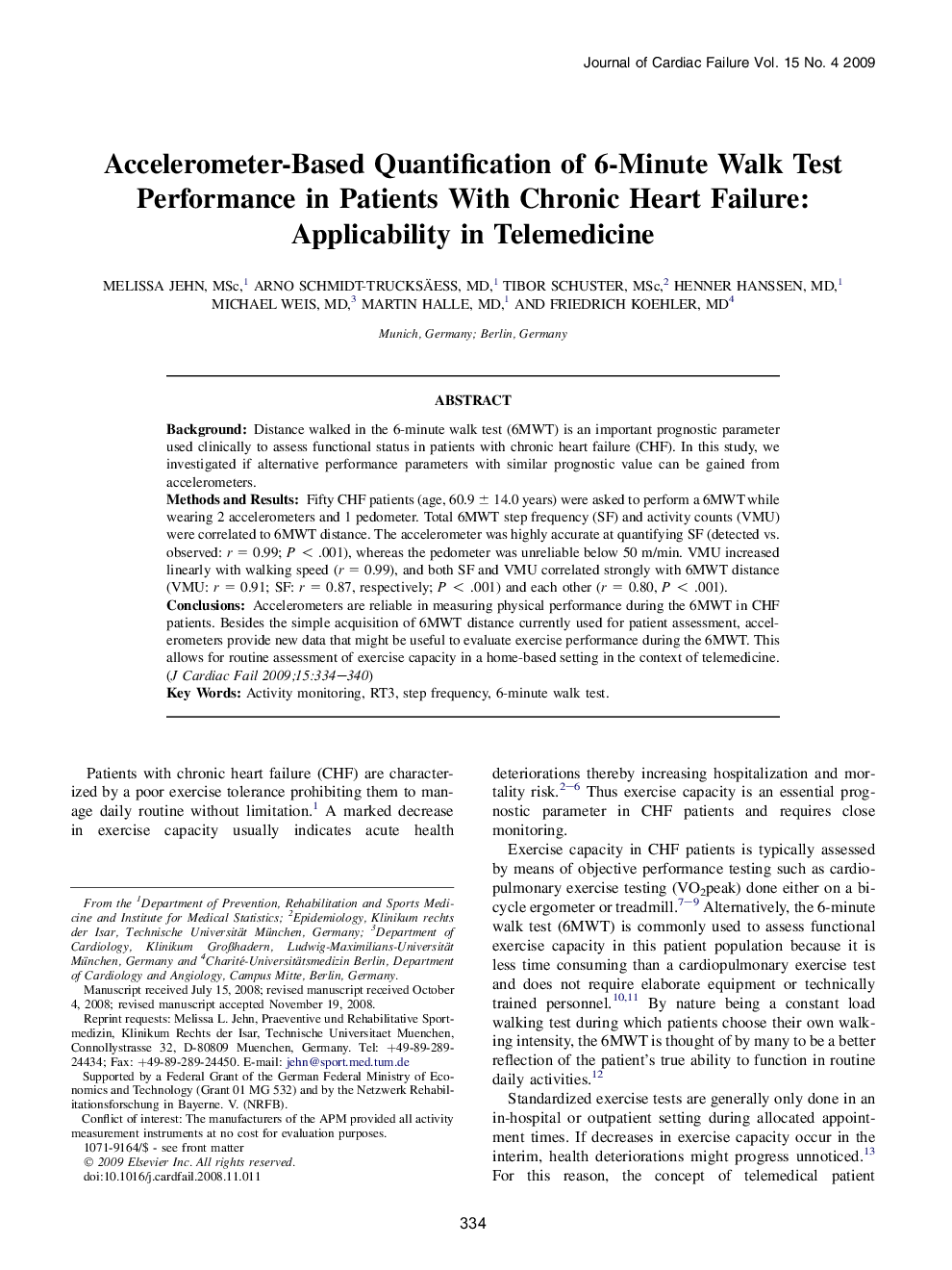| Article ID | Journal | Published Year | Pages | File Type |
|---|---|---|---|---|
| 2960646 | Journal of Cardiac Failure | 2009 | 7 Pages |
BackgroundDistance walked in the 6-minute walk test (6MWT) is an important prognostic parameter used clinically to assess functional status in patients with chronic heart failure (CHF). In this study, we investigated if alternative performance parameters with similar prognostic value can be gained from accelerometers.Methods and ResultsFifty CHF patients (age, 60.9 ± 14.0 years) were asked to perform a 6MWT while wearing 2 accelerometers and 1 pedometer. Total 6MWT step frequency (SF) and activity counts (VMU) were correlated to 6MWT distance. The accelerometer was highly accurate at quantifying SF (detected vs. observed: r = 0.99; P < .001), whereas the pedometer was unreliable below 50 m/min. VMU increased linearly with walking speed (r = 0.99), and both SF and VMU correlated strongly with 6MWT distance (VMU: r = 0.91; SF: r = 0.87, respectively; P < .001) and each other (r = 0.80, P < .001).ConclusionsAccelerometers are reliable in measuring physical performance during the 6MWT in CHF patients. Besides the simple acquisition of 6MWT distance currently used for patient assessment, accelerometers provide new data that might be useful to evaluate exercise performance during the 6MWT. This allows for routine assessment of exercise capacity in a home-based setting in the context of telemedicine.
